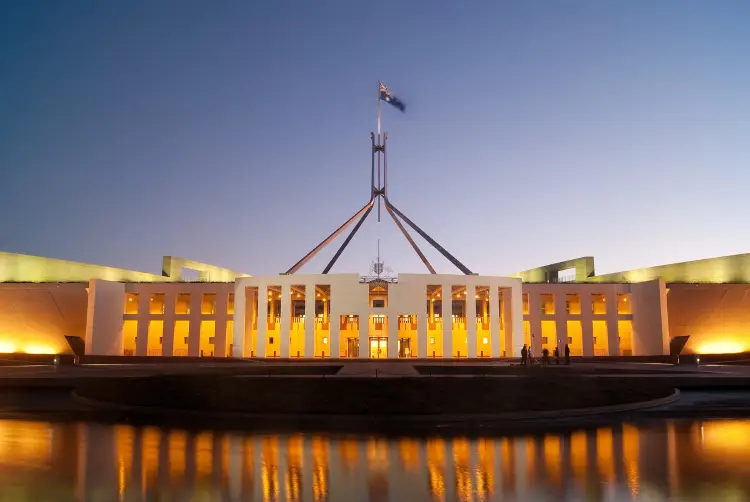
Australia’s Senate has published a report asking the government to introduce new regulations for digital assets, including cryptocurrencies. The 168-page document comes as an answer to the legal vacuum existing in relation to the growing popularity of crypto in the country. Many of Australia’s main financial institutions are still reticent to engage with the industry due to the ambiguity and lack of guidance around it.

Among the report’s 12 recommendations to the Australian government is the amendment of legislation so businesses mining digital assets in Australia using renewable energy can receive a 10% company tax discount. It also suggests undertaking a token mapping exercise to define the different types of digital asset tokens existing in the country.
The report follows a series of international calls for cryptocurrency regulation, most notably in Singapore and South Korea. Although regulating cryptocurrencies in the UK falls under the scope of the Financial Conduct Authority (FCA), trading of cryptocurrencies is not directly regulated in Britain. In most European countries and the Americas, cryptocurrency is legal, and its overall market value is $1.9trn.
However, senior analyst at GlobalData Nicklas Nilsson thinks that while the Australian Senate’s report highlighted the importance of regulating the crypto space, it fell short of diving into the specifics on how to do it.
“What did stand out was the emphasis on creating a crypto-friendly policy environment to establish Australia as a digital innovation hub and grab a share of the crypto industry,” Nilsson says. “Others, like the SEC [the US Securities and Exchange Commission], have taken a much more apprehensive approach, stating that cryptocurrency regulation is needed to safeguard investors or else somebody is going to get hurt.”
Is an international consensus building around regulating crypto?
Dr Iwa Salami, associate professor in law at the University of East London and expert in fintech law and regulation, says that a consensus is developing internationally around the need to regulate cryptocurrencies which precedes the report from Australia’s Senate. However, she also says that there is a need to speed these efforts up and adopt a holistic approach to regulation.
“International cooperation is needed and it's good that the international standard setters are actually looking at this,” Salami says. “But then there's a need to have countries also coming on board and embracing these standards because the industry can lend itself to what is known as regulatory arbitrage, which is where transactions and businesses in the space move from countries with stronger regulatory frameworks to those with weaker or no regulatory framework.”
Those involved in illegal or criminal activities involving crypto assets are taking advantage of this absence of strong crypto regulations, which adds urgency to the need for international cooperation and the need to get all countries on board through a coordinated regulatory approach, adds Salami.
International standard setters are assessing or reviewing how existing provisions can be applied to the crypto-assets industry, and where there is a need for fresh regulation, Salami continues. So far, the consensus has been forming around the objectives of regulation, including investor protection and market integrity - how transactions are occurring or how market players behave when they operate in the crypto-asset space.
Rules around market integrity, "which show that we have robust regulation against market manipulation and market abuse," are "still fundamentally lacking in the crypto-asset industry,” Salami says. But, she adds, "there's a huge awareness among regulators that there's a need for this, and I wouldn't say this awareness has been inspired by what's happening in Australia.”
Salami mentions international financial standard setters which are already developing policies on how to address crypto-asset regulations and what they should be covering. The Financial Action Task Force, an intergovernmental organisation that acts as a watchdog against money laundering and terrorism financing, has been working to ensure that anti-money-laundering provisions, such as know-your-customer (KYC) requirements, are in place for the crypto- assets industry.
The Financial Stability Board, another international body monitoring global financial systems, is also looking carefully at the regulations needed for stablecoins, which are used in cryptocurrency exchanges and decentralised finance – an area where Salami says there is currently minimal regulation.
“There's a huge need for that to be looked at because of the implications [stablecoins] can have on the wider financial markets," she says. “The Basel Committee on Banking Supervision is also looking at aspects of prudential regulation needed for the crypto-assets exposures of banks. So you can say that a consensus among global standard setters on aspects required for the regulation of the industry is gradually forming”.
Another issue for regulators is ensuring that they strike the right balance for crypto-asset regulations that does not stifle innovation, something that GlobalData’s Nilsson agrees on.
“It is quite clear that there is a global consensus that digital assets should be regulated, but it feels like we are a long way off when it comes to how those regulations should look like,” says Nilsson. “Striking the right balance between protecting investors and fostering innovation is difficult and it's evident that governments struggle to keep up with the speed with which the crypto space is developing.”
Salami concludes: “International consensus is forming here, but it needs to be sped up due to the frenetic pace of the evolution of the industry."






